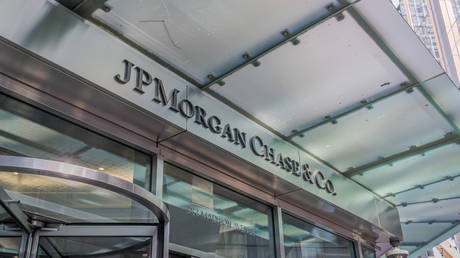
Charlie Javice is accused of lying about the number of clients her student loan helper app Frank had
Charlie Javice, the 31-year-old founder of student-aid assistance app Frank, lied about having 4 million clients’ data in order to dupe banking giant JP Morgan Chase into buying her company for $175 million, according to the US Securities and Exchange Commission, which filed a fraud complaint against Javice on Tuesday.
Javice and another executive at Frank “engaged in a months-long scheme to fabricate the data that both of them knew JPMC was paying $175 million to acquire,” the SEC stated. The app supposedly had information on more than 4 million college students who had used it to complete the Free Application for Federal Student Aid (FAFSA).
“Rather than help students, we allege that Ms. Javice engaged in an old school fraud,” SEC enforcement division director Gurbir Grewal said in a statement on Tuesday.
Javice approached JP Morgan Chase in 2021, offering up a goldmine of potential customers and their data in the form of Frank, which the bank saw – according to a separate lawsuit against Javice filed last year – as “a proven acquisition machine for college aged students.”
As part of the deal, she got $9.7 million and a managing partner position at JP Morgan Chase, a cushy job that came with a $20 million retention bonus.
However, just 300,000 of Frank’s customers actually existed, according to the SEC’s complaint. The other 4.265 million were allegedly cooked up with the help of a local data science professor whom Javice had paid $18,000 for the job when JP Morgan Chase asked for proof that Frank’s user base was as large as she claimed.
After convincing the bank the fake data was legitimate, Javice and her co-conspirator paid $105,000 to a third-party data compiler for its own data on in-college students and another $75,000 to another data compiler for email and phone number data to fill out that list in an effort to reinforce the fraud, according to the SEC complaint.
The alleged scam was nevertheless uncovered when JP Morgan Chase sent a marketing test email to its new audience – only to find that just 28% of the emails were delivered and just 1.1% of those were actually opened. A typical email marketing campaign for the company is able to deliver 99% of emails, with a read rate about 30%.
Javice, who appeared in Forbes Magazine’s “30 Under 30” list for finance in 2019, is no longer employed by JP Morgan Chase. She has denied the allegations and filed a countersuit in response to the bank’s 2022 lawsuit against her.




